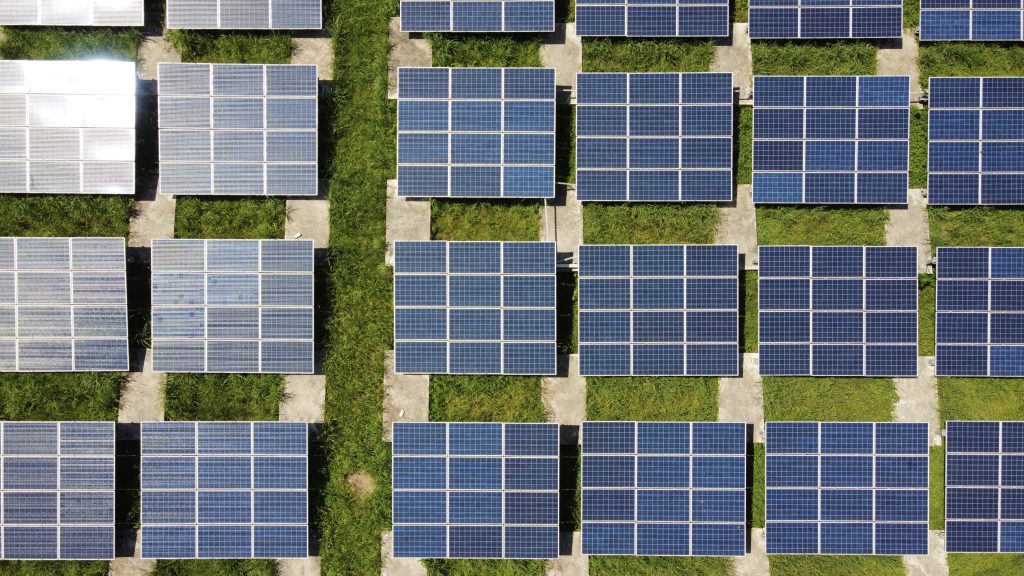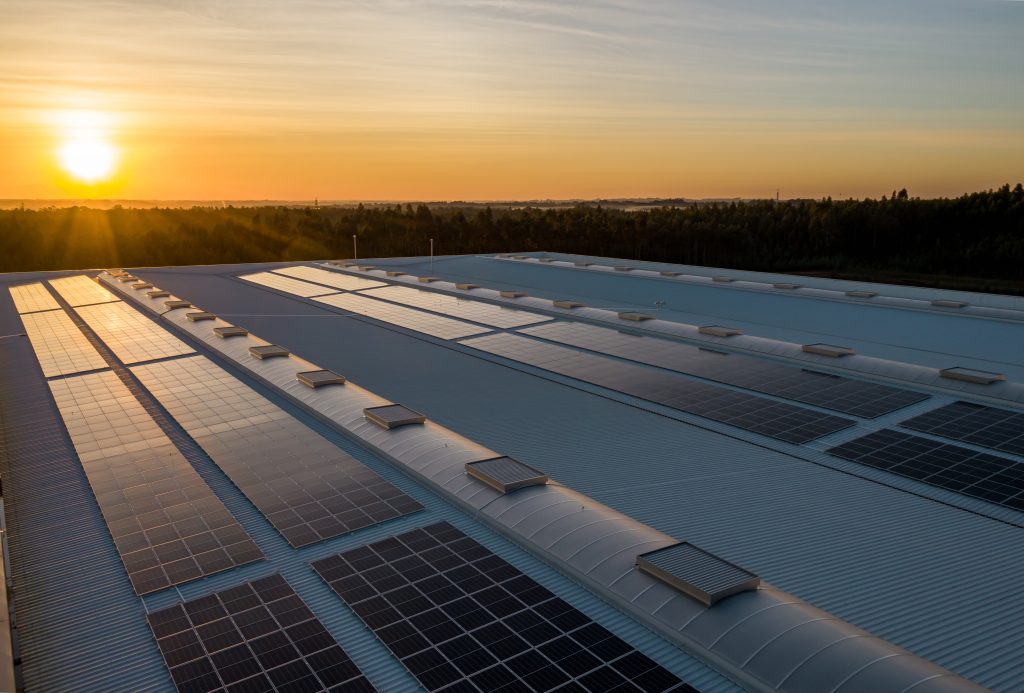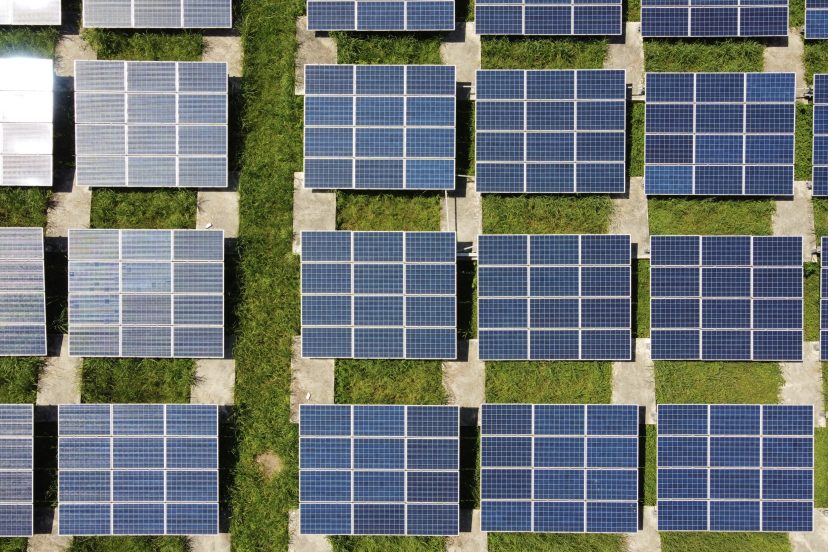How Do Solar Panels Help The Environment
As an Amazon Associate, I earn from qualifying purchases, at no additional cost to you. Disclaimer
I’ve always been fascinated by the wonders of solar energy and how it impacts our environment. So, today I’m here to shed some light on a topic close to my heart: how exactly do solar panels help the environment? From reducing greenhouse gas emissions to conserving water and preserving ecosystems, solar panels have countless positive effects on our planet. Join me as we explore the incredible ways in which these clean and renewable energy sources are transforming our world for the better.

Understanding Solar Panels
What are solar panels
Solar panels are devices that convert sunlight into electricity by allowing photons, or particles of light, to knock electrons free from atoms, generating a flow of electricity. They are made up of multiple solar cells, which are connected and covered by a protective sheet of glass.
How do solar panels work
Solar panels work through a process called the photovoltaic effect. The solar cells in the panels contain layers of semiconductor materials, typically silicon. When light enters the semiconductor material, it excites the electrons, allowing them to break free from their atoms. This creates an electric current, which can be harnessed and used to power various electrical devices.
Types of solar panels
There are several types of solar panels available, each with its own advantages and characteristics. The most common type is the monocrystalline solar panel, which consists of black solar cells arranged in a uniform pattern. Another type is the polycrystalline solar panel, which has a bluish hue and is made up of multiple small crystals. Thin-film solar panels are also gaining popularity due to their flexibility and lightweight nature.
Solar Panels and Emission Reduction
Solar energy vs. fossil fuels
Solar energy is a renewable source of energy that produces electricity without relying on fossil fuels. Unlike fossil fuels, which release harmful greenhouse gases when burned, solar energy does not emit any pollutants during its operation. By using solar panels to generate electricity, we can significantly reduce the dependence on fossil fuels and thereby reduce greenhouse gas emissions.
Carbon footprint of solar panels
Solar panels have a significantly lower carbon footprint compared to traditional energy sources. The carbon footprint of a solar panel is determined by its manufacturing process, transportation, and installation. While some emissions are associated with the production of solar panels, they are quickly offset by the emissions saved from using solar energy over their lifespan. In fact, studies have shown that solar panels can offset their carbon footprint within 2-3 years of operation.
Contribution to air quality
By reducing the reliance on fossil fuels, solar panels play a crucial role in improving air quality. Fossil fuel power plants release various pollutants into the air, including sulfur dioxide, nitrogen oxides, and particulate matter, which can have adverse effects on human health and the environment. Using solar panels to generate electricity eliminates these harmful emissions, leading to cleaner and healthier air for everyone.

Solar Panels and Energy Efficiency
Efficiency of solar panels
The efficiency of a solar panel refers to the percentage of sunlight that is converted into electricity. Advances in solar panel technology have significantly increased their efficiency over the years. Currently, the average efficiency of commercial solar panels ranges from 15% to 20%, with some high-end panels reaching as high as 25%. Higher efficiency panels allow for the generation of more electricity from the same amount of sunlight, maximizing the energy output and overall effectiveness of solar systems.
Comparison with traditional energy sources
When comparing the energy efficiency of solar panels to traditional energy sources, it becomes evident that solar energy is a more efficient and sustainable option. Traditional energy sources such as coal or gas power plants have relatively low energy conversion rates, with a significant amount of energy being lost during the generation and transmission process. Solar panels, on the other hand, directly convert sunlight into electricity with minimal energy loss, making them a highly efficient and environmentally friendly choice.
Solar Panels and Resource Conservation
Reduced demand for non-renewable resources
One of the significant benefits of solar panels is their ability to reduce the demand for non-renewable resources. Traditional energy sources like coal, natural gas, and oil are finite resources that are rapidly depleting. By harnessing the power of the sun, solar panels offer a sustainable alternative that is virtually inexhaustible. This reduction in non-renewable resource consumption helps to preserve these valuable resources for future generations.
Improved water conservation
In addition to reducing the demand for non-renewable resources, solar panels also contribute to improved water conservation. Traditional power plants require vast amounts of water for cooling and steam generation, putting a strain on freshwater resources. Solar panels, on the other hand, require little to no water for their operation, thereby preserving water supplies and reducing the pressure on local ecosystems.
Reusability and recycling of solar panels
As solar panel technology continues to evolve, so does the focus on their end-of-life management. Solar panels are designed to have a long lifespan, typically around 25-30 years or more. At the end of their useful life, solar panels can be recycled, allowing for the recovery of valuable materials such as silicon, glass, and aluminum. This recycling process minimizes waste and reduces the environmental impact of solar panels, making them a truly sustainable energy solution.

Financial Benefits of Solar Panels
Cost effectiveness in the long run
While the initial cost of installing solar panels can be significant, the long-term financial benefits outweigh the upfront investment. Solar energy is a free and abundant resource, and once the panels are installed, the electricity generated is essentially free. This can lead to substantial savings on electricity bills over the lifespan of the solar panels, making them highly cost-effective in the long run.
Government incentives and policies for solar energy
Governments around the world have recognized the importance of transitioning to renewable energy sources and have implemented various incentives and policies to promote the adoption of solar panels. These incentives can include tax credits, grants, and subsidies, which help offset the initial installation costs and accelerate the return on investment for solar panel owners. Additionally, feed-in tariff programs allow individuals or organizations to sell excess electricity generated by their solar panels back to the grid, further incentivizing the adoption of solar energy.
Solar Panels and Reduction in Energy Waste
Decreased energy transmission loss
One of the significant advantages of solar panels is their ability to generate electricity close to the point of use. Unlike traditional power plants located far away from urban areas, solar panels can be installed on rooftops and other structures within the community. This proximity reduces the energy transmission loss associated with the transportation of electricity over long distances, improving overall energy efficiency and reducing waste.
Storage of excess energy
Solar panels often generate more electricity than needed during peak sunlight hours. To ensure that this excess energy is not wasted, it can be stored in batteries or fed back into the grid for later use. The development of efficient energy storage technologies, such as lithium-ion batteries, has allowed for better utilization of solar energy. By storing and utilizing excess energy efficiently, solar panels help minimize energy waste and maximize the benefits of solar power.

Impact of Solar Panels on Wildlife and Ecosystems
Reduced pollution and its effects on wildlife
By reducing the reliance on fossil fuels, solar panels significantly contribute to reducing pollution, which can have a positive impact on wildlife and ecosystems. Air and water pollution from traditional energy sources can harm various forms of wildlife, including birds, aquatic species, and habitats. By choosing solar energy, we can help protect these ecosystems and promote a healthy coexistence with nature.
Sustainable agriculture and solar panels
Solar panels can also benefit agricultural practices by providing a source of clean energy for irrigation systems, lighting, and powering other farm equipment. Solar-powered irrigation systems, in particular, offer a sustainable and cost-effective solution for farming in rural areas with limited access to electricity. By integrating solar panels into agricultural operations, we can reduce reliance on fossil fuel-powered machinery, minimize environmental impact, and create more sustainable farming practices.
Challenges and Solutions in Solar Energy Adoption
Common misconceptions about solar energy
One of the challenges facing solar energy adoption is the presence of common misconceptions. Some people believe that solar panels are not efficient enough to generate sufficient electricity or that they are too expensive to install. However, advances in technology have significantly improved the efficiency of solar panels, making them a viable and cost-effective option. Educating the public about the benefits and realities of solar energy can help dispel these misconceptions and encourage wider adoption.
Moving from fossil fuel reliance to solar energy
Transitioning from a fossil fuel-driven energy system to one powered by solar energy presents infrastructural and logistical challenges. Existing power grids and infrastructure are designed to accommodate traditional energy sources and may require upgrades to handle the fluctuations and distributed nature of solar energy. However, with proper planning, investment, and policy support, the transition can be achieved, leading to a more sustainable and resilient energy sector.
Addressing cost and infrastructure challenges
The initial cost of installing solar panels can be a barrier for many individuals and organizations. However, falling solar panel prices, coupled with government incentives and financing options, are making solar energy increasingly accessible and affordable. Additionally, investments in renewable energy infrastructure, such as grid capacity upgrades and energy storage systems, are crucial to supporting the growth of solar energy and overcoming any technical limitations.

Solar Panels and Job Creation
Growth of solar industry
The solar industry has experienced remarkable growth in recent years, creating numerous job opportunities. The installation, manufacturing, and maintenance of solar panels require a skilled workforce, leading to the development of new job sectors and economic growth. As the demand for solar energy continues to rise, so does the need for skilled professionals in the solar industry.
Job opportunities in solar energy sector
The solar energy sector offers a wide range of job opportunities across various disciplines. From solar panel installation technicians and engineers to sales representatives and project managers, there is a diverse range of roles available. Moreover, the growth in the solar industry also fosters the development of associated industries, such as energy storage, electric vehicle charging infrastructure, and smart grid technologies, further expanding the job market.
Future of Solar Energy
Technological advancements in solar panel efficiency
The future of solar energy looks promising with ongoing research and development efforts aimed at improving the efficiency of solar panels. New technologies, such as perovskite solar cells and multi-junction solar cells, show great potential in achieving higher conversion efficiencies. These advancements will not only make solar energy more cost-effective but also increase its overall effectiveness as a renewable energy source.
Emerging trends in solar energy usage
As solar energy becomes more prevalent, emerging trends are shaping its usage. One such trend is the integration of solar panels into building materials, such as solar roof tiles and solar windows, allowing for seamless and aesthetically pleasing incorporation of solar energy generation. Another trend is the growth of community solar projects, where multiple individuals or businesses collectively invest in a solar installation and share the generated energy. These trends reflect the evolving nature of solar energy and its integration into various aspects of our daily lives.
In conclusion, solar panels offer numerous benefits to the environment, energy efficiency, resource conservation, and job creation. Through their ability to reduce emissions, conserve resources, and provide clean and renewable energy, solar panels play a vital role in the transition towards a more sustainable future. With continued advancements in technology, supportive policies, and public awareness, solar energy has the potential to become a significant contributor to the global energy landscape.

